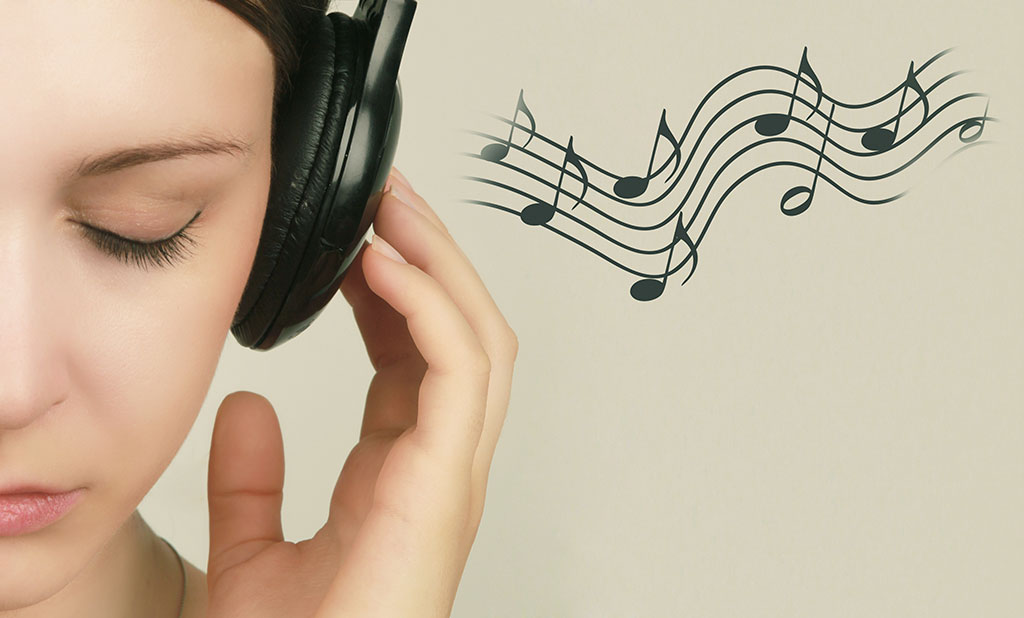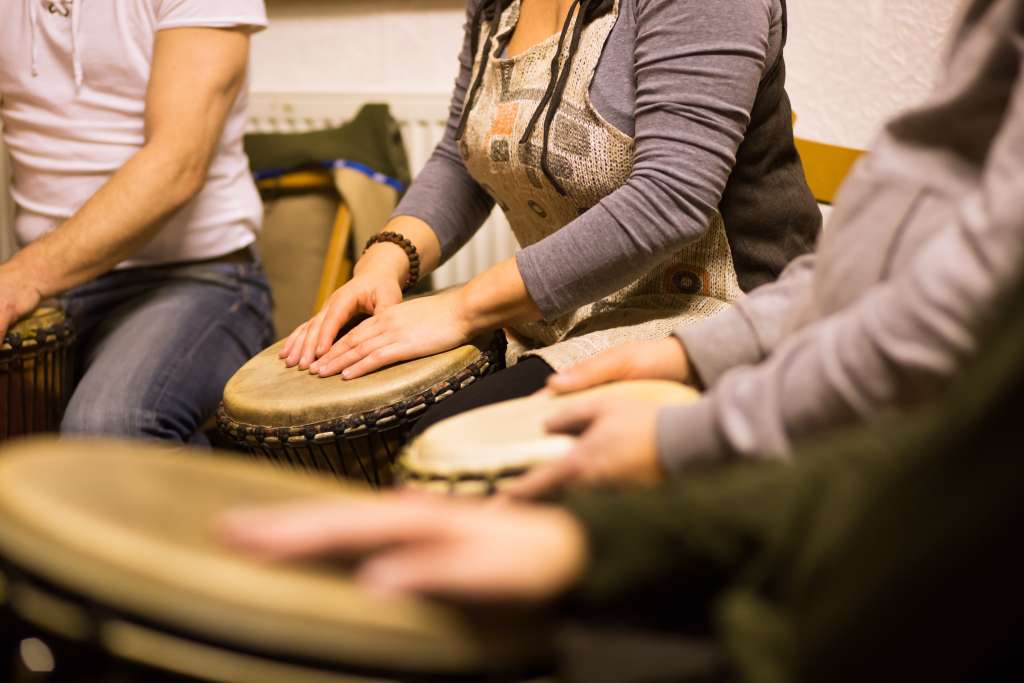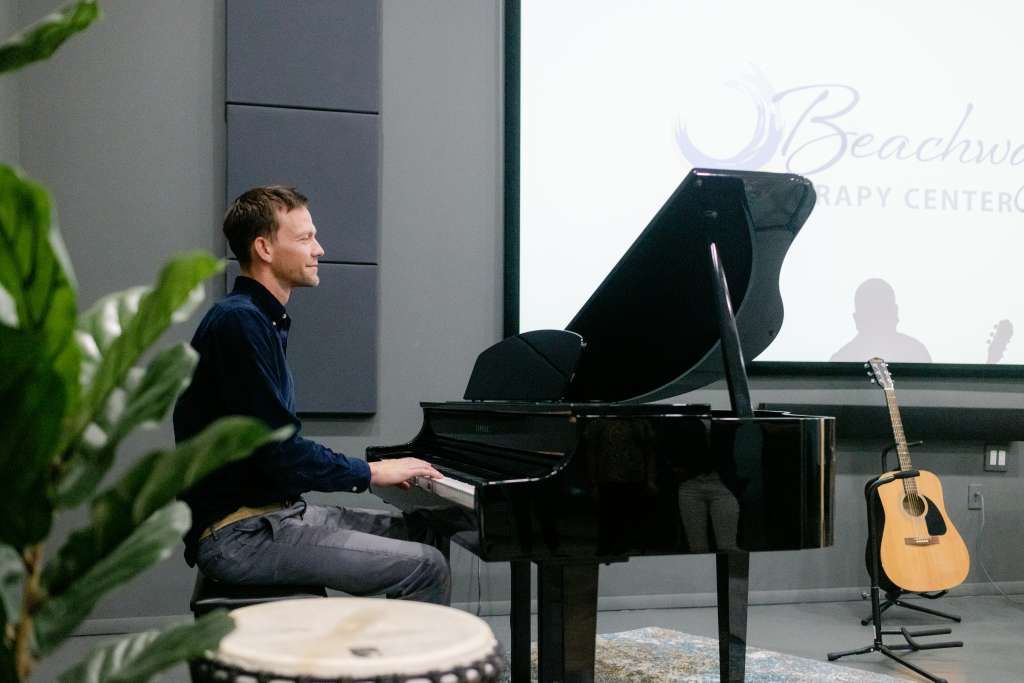

Music Therapy for Mental Health
Music therapy is a holistic approach to addiction treatment. It incorporates several mental and physical processes to achieve healing and targets a person’s entire well-being rather than the addiction alone.
The American Music Therapy Association (AMTA) defines music therapy as “the clinical and evidence-based use of music interventions to accomplish individualized goals within a therapeutic relationship by a credentialed professional who has completed an approved music therapy program.” Those who undergo music therapy listen to music, create music, or combine both, depending on their needs.


The Benefits of Music Therapy
Specialists at the AMTA say that this form of treatment helps people of all ages. It assists in the management of emotional, physical, and cognitive problems, including developmental and learning disabilities, mental health needs, Alzheimer’s disease, other aging-related conditions, brain injuries, physical disabilities, acute or chronic pain, and substance abuse problems.
Neuroscientist Kiminobu Sugaya and world-renowned violinist Ayako Yonetani co-teach a course called “Music and The Brain” at The Burnett Honors College. Their course teaches that music can:
-
- Increase your intelligence
- Assist with neurodegenerative disease
- Reduce seizures
- Improve your ability to communicate
- Strengthen your mind
- Boost your immunities
- Help you recall memories
- Help you manage emotions
- Tap into primal fears
- Repair brain damage

What Types of Music Therapy Treatments
Are Available at Beachway Therapy Center?
We offer two music therapy methods: the active method, which involves playing instruments, and the receptive listening-based method —
listening to music chosen by a music therapist for a specific purpose. Music therapy may be administered in an individual or a group setting by using:
Dalcroze Eurythmics
The Bonny Method of Guided Imagery and Music
Kodaly
Neurologic Music Therapy (NMT)
Orff-Shulwerk


Evidence of the Effectiveness
of Music Therapy
There is much scientific evidence supporting music therapy’s effectiveness, which is why it has become accepted as a treatment for a wide range of disorders. As Ashford University explains, “While it may be obvious that music impacts you physically, understanding how music and the brain interact requires deep study and an ability to probe the mysteries of the human mind.” Those studies have shown that when the mind hears music, a series of chemical reactions occur.
Dopamine, known as the “feel-good” chemical, activates pleasure centers when released. This chemical is triggered when we eat and sleep and when we listen to music. Endorphins are also released when we listen to music. These hormones make us feel happy and euphoric and aid in pain relief, which is how music therapy can lessen our physical pain.
Studies by Harvard Health have also found evidence that music therapy slows the heart rate and eases anxiety before operations, reduces pain, helps in physical therapy, decreases the number of side-effects in cancer treatment, restores lost speech, and even increases the quality of life for people who have dementia.
To the medical community, music therapy is not pseudoscience — music is medicine. Music therapy has been instituted in educational facilities all over the country, and these programs are alive and well today.


Can Music Therapy Be
Dangerous in Addiction
Treatment?
It’s important to remember that for those who are newly sober, some music should be avoided. If certain songs are closely associated with substance abuse in a patient’s mind, listening to them could trigger a relapse.
It may be possible to replace the old memories associated with those songs with new positive ones, but it’s usually better to wait until sobriety is more securely established. In the meantime, there will be lots of other kinds of music to discover and enjoy.

Turn Your Life Around
with Music Therapy at Beachway
Located in beautiful South Florida and surrounded by picturesque scenery, our facilities offer luxurious amenities second to none. Thousands of people from across the country have found healing in the peaceful and supportive atmosphere at Beachway Therapy Center.If you’re interested in finding out more about how our music therapy for addiction program can help you or a loved one regain control of a healthy and sober life, call us today. The counselors at Beachway Therapy Center are available 24 hours a day, seven days a week, to speak with you.



